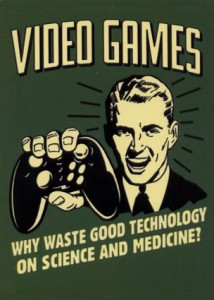The United Kingdom is Europe’s second largest video game market and the fifth largest in the world. Almost all videogames developers now implement techniques that are designed to protect and enforce copyright law. This restrictive technology is now beginning to hamper the ability of gaming companies to innovate by imposing platform boundaries and these measures now appear to also be problematic to the game development lifecycle. The roots of this complex problem are grounded in several disciplines including copyright law, cyber security, and creative technology. This restrictive technology can prevent you from copying certain CDs or DVDs to a portable device to watch during your train journey or even go as far as to dictate which brand of coffee capsules you put in your expresso machine.
This is Digital Rights Management (DRM).
The Madrigal project has been awarded a Fusion Investment Fund to investigate, identify and communicate how game developers make sense of DRM technology when developing video games. At present virtually no empirical research exists on how much videogame developers really know about the relationship between DRM and copyright law in terms of boundaries to DRM implementation, or on their real expectations from currently available DRM technology. Do they really understand it? Do they like it? Do they implement it regularly? Do they respect the boundaries? Is DRM legal? Other pressing issues that need addressing include, does DRM really stifle competition? After all the developers are protected by copyright law, but where do the issues with DRM really lie?
These questions surrounding the issue of DRM have gained more coverage recently thanks to the Apple trial. In which Apple was accused of anti-competitive behaviour because it refused to disclose its DRM to competitors. The collection of this entirely new data on the complexities of DRM will form part of the basis for a wider-reaching research project involving not only legal and IT scholars at BU but also international academic and industry partners. With its research expertise in copyright law innovation, usable security research, and game development, and its institutional drive for fusion across inter-disciplinary research, education, and professional practice, BU is uniquely situated to start tackling this problem.
If you would like further information on this research feel free to contact us or to tweet us. We look forward to any feedback. Also, if you are interested, keep tuned, as we will tell you what we learned from our experience at the end of the project (July 2015).
Dr. Marcella Favale (Principal Investigator) Centre for Intellectual Property Policy and Management, BU, mfavale@bournemouth.ac.uk, @MFavaleIP
Dr. Shamal Faily (sfaily@bournemouth.ac.uk) and Dr. Christos Gatzidis (cgatzidis@bournemouth.ac.uk), Faculty of Science and Technology, BU
Neil McDonald (Research Assistant ) BU Cyber Security Unit (BUCSU) @BUCybersecurity (nmcdonald@bournemouth.ac.uk)













 SPROUT: From Sustainable Research to Sustainable Research Lives
SPROUT: From Sustainable Research to Sustainable Research Lives BRIAN upgrade and new look
BRIAN upgrade and new look Seeing the fruits of your labour in Bangladesh
Seeing the fruits of your labour in Bangladesh Exploring Embodied Research: Body Map Storytelling Workshop & Research Seminar
Exploring Embodied Research: Body Map Storytelling Workshop & Research Seminar Marking a Milestone: The Swash Channel Wreck Book Launch
Marking a Milestone: The Swash Channel Wreck Book Launch ECR Funding Open Call: Research Culture & Community Grant – Application Deadline Friday 12 December
ECR Funding Open Call: Research Culture & Community Grant – Application Deadline Friday 12 December MSCA Postdoctoral Fellowships 2025 Call
MSCA Postdoctoral Fellowships 2025 Call ERC Advanced Grant 2025 Webinar
ERC Advanced Grant 2025 Webinar Update on UKRO services
Update on UKRO services European research project exploring use of ‘virtual twins’ to better manage metabolic associated fatty liver disease
European research project exploring use of ‘virtual twins’ to better manage metabolic associated fatty liver disease